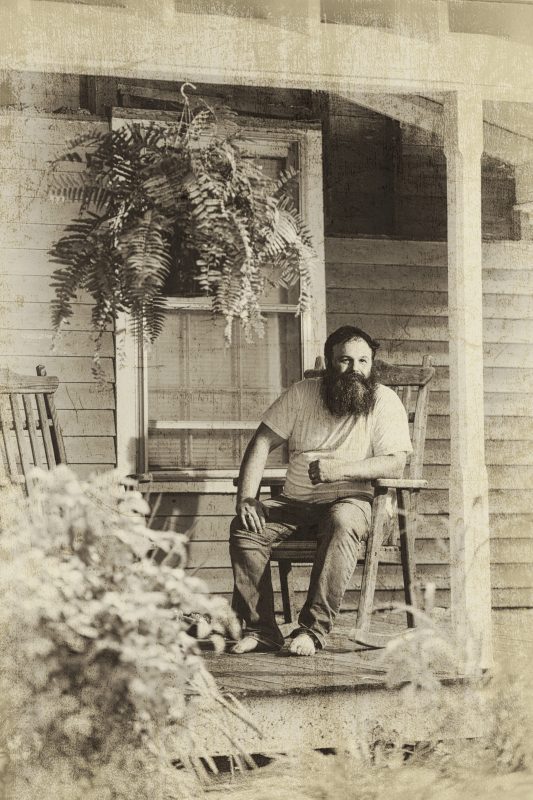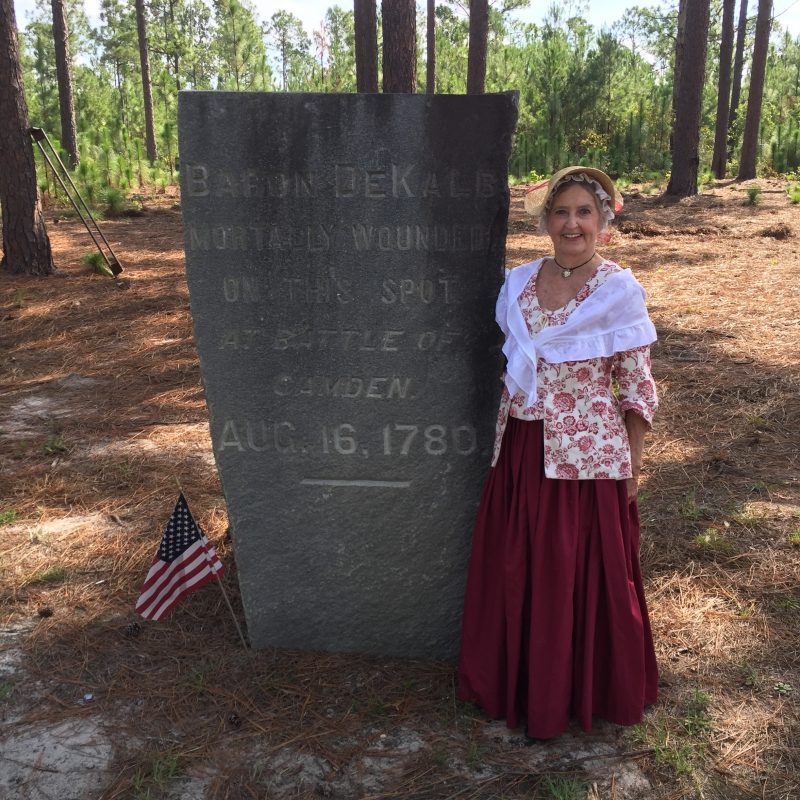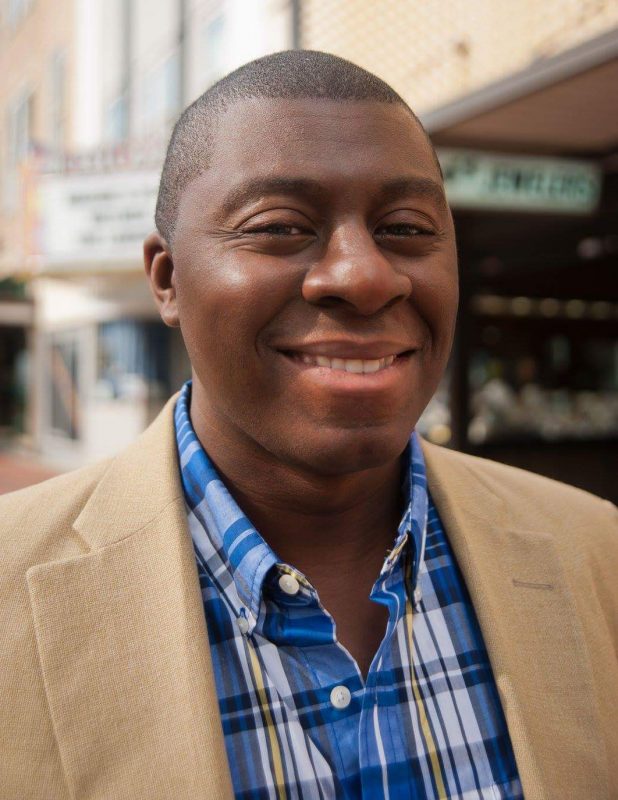SC Humanities is pleased to announce that six new speakers have joined the Speakers Bureau: Humanities Out Loud program. Offering a variety of interesting programs from “ Silas Butts: The Legacy of a Moonshiner” to “Liberty Trail – The Importance of South Carolina During the American Revolutionary War” to “Women Taking Charge: The Rise of the Novel and Resistant Reading,” these six scholars are available to speak for public audiences at nonprofit organizations or public institutions across the state. The Speakers Bureau program is one of the longest-running and most popular programs offered by SC Humanities.
 Suzie Parker Devoe
Suzie Parker Devoe
Suzie Parker Devoe is an actor, writer and producer and a graduate of The American Academy of Dramatic Arts and Southern Methodist University. After a career of performing, she began public speaking ten years ago about topics on Women’s History and the Suffrage movement. As an Executive Board member of the Edward Hopper House Arts Center, she added topics about Edward Hopper and his life as an artist to her repertoire. She enjoys speaking to audiences on subjects that inspire her.
Women in Reconstruction: The Lives of Susie King Taylor, Charlotte Forten, and Laura Towne
Susie King Taylor escapes bondage at the age of fourteen; Charlotte Forten, an educated teacher from Philadelphia, boards a steamship, as does Laura Towne, a Boston medical school graduate. All three end up in Beaufort and the South Carolina Sea Islands in 1862. Three women of different backgrounds, ages, and race. Where did they come from, what did they want, and why did they stay? Each was forever changed by their time in the South Carolina Lowcountry. Their journeys, their writings, their fortitude and passion are inspirational. This program will remind listeners of the power of education and the resourcefulness of women who worked during the era of Reconstruction.
 Nicholas Gambrell
Nicholas Gambrell
Nicholas (Nick) Gambrell was born, raised and still lives in Oconee County, SC. He attended Appalachian State University where he majored in History and minored in Music (2001). Wanting to return home, Nick then received his Masters in History from Clemson University (2003). After graduate school, Nick went on to become the Director/Curator at the Oconee Heritage Center (now Oconee History Museum). In 2009, he left the museum to travel the world with various groups as a missionary for four years. Over the years, Nick has taught history as an adjunct professor at local colleges including Greenville Technical College, Erskine College, Southern Wesleyan University and Tri-County Technical College. Together with his wife, Bentley, Nick opened an architectural salvage business in 2014. He still salvages but mainly focuses on “re-use” through historic restoration. Part of this historic restoration is currently taking place at the Foothills Farmstead- a living-history, working farm located in Oconee County, SC. Nick and Bentley have two children, London and Zeke, and they are currently restoring a nineteenth-century house of their own in Oakway, SC.
Silas Butts: The Legacy of a Moonshiner
This lecture looks at the interesting concept of history vs. memory using the microhistory of one man’s legacy. Silas Butts was a moonshiner in Oconee County who also ran a grist mill and an unofficial orphanage. But people remember him differently- either as a great man or a horrible man. How can one person have two opposite legacies?
One Piece at a Time: Moving Historic Structures
Nick Gambrell has moved many historic structures over the years by disassembling and reassembling. This lecture illuminates the painstaking process as well as looking at a variety of historic properties that have been relocated.
Historic Rural Construction
Nick Gambrell’s passion has long been historic rural construction of the region. The lecture will cover building styles, construction methods & ranges from farmhouses to log cabins.
 Aliene Shields Humphries
Aliene Shields Humphries
Aliene Humphries was born in Spartanburg, SC and graduated from Columbia College with degrees in Special Education and Public Speaking/Drama. In 2010, she wrote her first book, The Legacy of A Common Civil War Soldier, based on the letters written by her great-grandfather Private Thomas Marion Shields in 1861-1865. Currently, Aliene is promoting The Importance of South Carolina in the American Revolution and the newly established Liberty Trail, which includes 69 significant sites in her beloved state of South Carolina.
Liberty Trail: The Importance of South Carolina During the American Revolutionary War
In this presentation, Aliene Humphries talks about the newly established Liberty Trail in South Carolina and the fascinating but little-known stories of the Revolutionary War’s Southern Campaigns. The Liberty Trail includes 69 battleground sites with a map.
The War That Made America: The French and Indian War
The French and Indian War pitted the colonies of British America against those of New France, each side supported by military units from the parent country and by American Indian allies. Humphries discusses the experiences of this often-forgotten conflict and the outcome that caused the colonists to want to fight for independence from England.
The Legacy Of A Common Civil War Soldier: Private T. M. Shields
Humphries authored a book using the letters her great grandfather wrote back home to his beloved wife during 1861-1865. Based on the book The Legacy of A Common Civil War Soldier, this program offers a rare glimpse of what life was really like for a Confederate soldier and his wife.
 Christopher Johnson
Christopher Johnson
Christopher D. Johnson has been a professor of English at Francis Marion University since 1996. A specialist in eighteenth-century British literature, Dr. Johnson has published A Political Biography of Sarah Fielding (Taylor and Francis, 2017), New Contexts for Eighteenth-Century British Fiction: Essays in Honor of Jerry C. Beasley (University of Delaware Press, 2011), and a critical edition of Sarah Fielding’s The Lives of Cleopatra and Octavia (Bucknell University Press, 1994). The author of more than seventy scholarly publications, Dr. Johnson reviews new work for a variety of journals and has served as a book review editor for “XVIII: New Perspectives on the Eighteenth Century.” He is currently preparing a critical edition of Philip Doddridge’s The Life of Colonel James Gardiner (1747) and working on a book examining the intersections between the rise of the novel and domestic violence.
The Early Novel as Self-Help Book: The Curious Intersections of Fiction and Medicine
Today we think of novels as little more than entertainment. When the genre emerged in the eighteenth century, novels also had an almost medicinal function: they were texts that helped readers regulate their passions. Drawing on recent scholarship, this talk will explain how reading fiction was thought to improve health. Equally important, it will explore how many of the medical theories of the eighteenth century continue to find expression within our culture, if not within our science.
The Early-Modern Origins of Today’s Political Satire
As we are bombarded daily by ever-coarsening political discourse, it is tempting to long for a gentler, perhaps more civil, age. Imagining a past similar to the worlds of Jane Austen novels, we sometimes project our wishes onto the eighteenth and nineteenth centuries. This talk will suggest that what we are experiencing in America today is part of a long tradition. In fact, many of the satiric texts of the early-modern period, including familiar works such as “Gulliver’s Travels,” not only used the same techniques as do modern commentators, but actually used them more viciously.
Women Taking Charge: The Rise of the Novel and Resistant Reading
One of the most interesting dynamics of eighteenth-century literature is the emergence of women writers. This talk will examine how early women novelists took the stories they inherited from male authors and retold them in ways that were quietly subversive. This process of appropriation and redirection continues today and provides important insight on how art shapes culture.
Skilled Hands and Thinking Minds: Craft and the Humanities
Our society tends to divide work into neat categories. There is, for example, the work of the mind, and the work of hands. Universities are thought to prepare students for the former, technical colleges for the latter. This talk will explore the shortcomings of this type of thinking. Drawing on the experiences of teaching a university course that included woodworking, the speaker will explore the hidden intellectual content of labor-intensive work and suggest the benefits breaking down distinctions that are both obsolete and inaccurate. Humanities teachers, the paper will show, can play an important role in helping students learn to appreciate and value skills that too often go unnoticed.
Domestic Violence and the Rise of the Novel
From an early age, we are taught that reading is good. But what happens when the stories that we read reinforce dangerous ideas? This talk will explore the similarities between novels of courtship and marriage and the horrific dynamics of domestic violence. With reference to popular texts, such as Disney animations, the speaker identifies how narrative patterns of sacrifice, loss, and redemption not only shape the way we understand experience, but can also blind us the dangers of abusive relationships.
 Len Lawson
Len Lawson
Len Lawson is the author of Chime (Get Fresh Books, 2019), the chapbook Before the Night Wakes You (Finishing Line Press, 2017), and co-editor of Hand in Hand: Poets Respond to Race (Muddy Ford Press, 2017). His poetry has been nominated for the Pushcart Prize and Best of the Net. He has received fellowships from Callaloo, Vermont Studio Center, Virginia Center for the Creative Arts, Weymouth Center for the Arts, and a scholarship from the Emrys Foundation. His poetry appears in Callaloo Journal, African American Review, Ninth Letter, Verse Daily, Mississippi Review, and elsewhere. Len is also a Ph.D student in English Literature and Criticism at Indiana University of Pennsylvania. He currently teaches English at Florence-Darlington Technical College.
Water as Vehicle and Healing in Julie Dash’s Daughters of the Dust
The 1991 film Daughters of the Dust was the first to portray the Gullah culture on film to a national audience from St. Helena Island in South Carolina. Water in the film takes on the symbol of flight, migration, and separation of the Peazant family from its roots. This lecture explores how views of water in the film shapes discourse on Gullah culture and on echoes of slavery in America.
The Power of Black Female Flight in the Neo-Slave Narrative
In modern fictionalized narratives on slavery by black authors, black women are given a supernatural ability to transcend time and space in order to alter their genealogies and family trauma. This lecture details such abilities given to black female characters and its implications on race relations in the 21st century.
Contributions of Contemporary African American South Carolina Native Poets
South Carolina is home to several nationally acclaimed African American poets who have left the state to pursue their crafts and careers in stunning fashion. Three South Carolina native poets have gone on to win the National Book Award for Poetry in the last decade. This lecture will explore the work of such poets as Terrance Hayes, Nikky Finney, Sharan Strange, and more with focus on their associations to South Carolina and how the state appears in their poetry.
 Kathryn Taylor
Kathryn Taylor
Kathryn Taylor was born at the Great Lakes Naval Station near Chicago, Illinois and spent much of her life in the Chicagoland area. She is a retired teacher and had taught in the schools of Illinois, California, and Virginia before her retirement and relocation to South Carolina. It was there where she wrote her book, Two Minus One: A Memoir (November 2018) following the unexpected abandonment by her second husband. An avid reader, enthusiastic traveler, and incurable beach lover, she resides outside of Charleston, SC, which affords her the opportunity to enjoy all three of her favorite past times. Two Minus One: A Memoir is her first book.
Journaling to Authorship
In this talk, Kathryn will discuss the process of turning personal notes into a published book.
Publication
Kathryn will share how the writing and the publication process present separate challenges.
SC Humanities makes the Speakers Bureau program available to nonprofit groups and public agencies at a reasonable cost. SC Humanities provides $250 towards a speaker’s honorarium. Any other costs (travel, additional honorarium) are negotiated between the speaker and the sponsoring organization. A one-page application must be submitted at least four weeks in advance of the program date. Find out more about the Speakers Bureau!
The mission of SC Humanities is to enrich the cultural and intellectual lives of all South Carolinians. Established in 1973, this 501(c) 3 organization is governed by a volunteer 20-member Board of Directors comprised of community leaders from throughout the state. It presents and/or supports literary initiatives, lectures, exhibits, festivals, publications, oral history projects, videos and other humanities-based experiences that directly or indirectly reach more than 250,000 citizens annually.

 Suzie Parker Devoe
Suzie Parker Devoe Nicholas Gambrell
Nicholas Gambrell Aliene Shields Humphries
Aliene Shields Humphries Christopher Johnson
Christopher Johnson Len Lawson
Len Lawson Kathryn Taylor
Kathryn Taylor